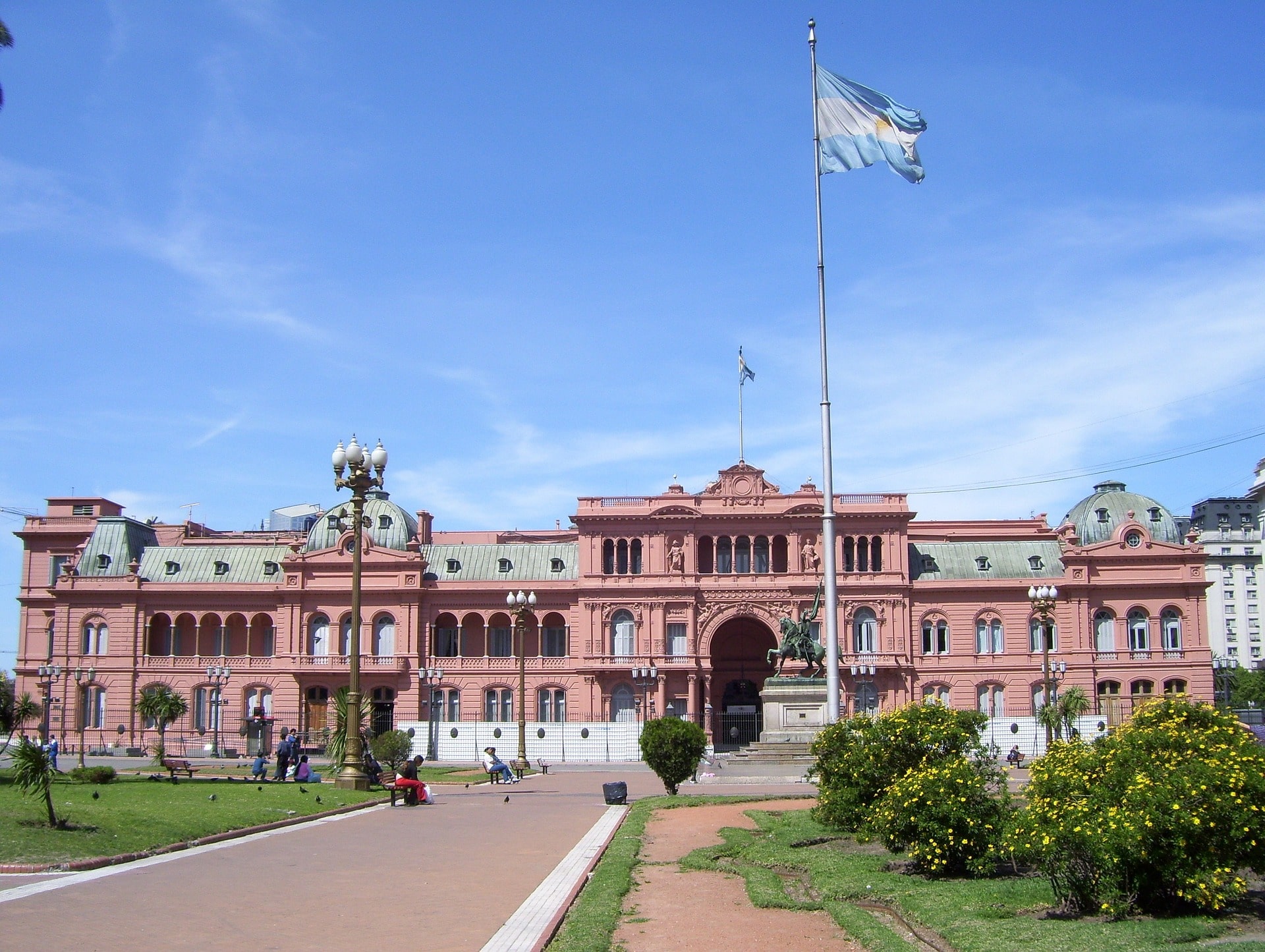
Why should you consider studying in Argentina?
Why Argentina?
Argentina offers many compelling reasons to study there, including:
- Academic excellence: Argentina is home to many top-ranked universities, including the University of Buenos Aires, which is considered one of the best universities in Latin America. Students can benefit from high-quality education and world-class faculty members.
- High-quality education: Argentina’s education system is recognized for its high quality and rigorous academic standards. Students receive a solid academic foundation and develop critical thinking and analytical skills.
- Cultural experience: Argentina is a country with a rich cultural heritage and a diverse population. Studying in Argentina will expose you to different traditions, customs, and perspectives, allowing you to broaden your horizons and enhance your cultural competence.
- Affordable education: The cost of education in Argentina is relatively low compared to other countries. Tuition fees and living expenses are affordable, making it an excellent option for students on a budget.
- Vibrant student life: Argentina is known for its lively and vibrant student community. Many social and cultural events, clubs, and organizations provide opportunities to meet new people, make friends, and have fun.
- Natural beauty: Argentina is a beautiful country with stunning landscapes, including the Andes Mountains, Argentine Patagonia, and the Iguazu Falls. Students can take advantage of the country’s natural beauty by exploring it during their free time.
- Language skills: Spanish is the official language of Argentina, and studying there can help you improve your Spanish language skills. Being proficient in Spanish can open up opportunities for work and travel in many Spanish-speaking countries.
Overall, studying in Argentina is a great choice for students who are looking for a high-quality education, a diverse cultural experience, and an affordable cost of living.
What are the best courses to study in Argentina?
Argentina offers a variety of excellent courses across different fields of study. Here are some of the best courses to study in Argentina:
- Medicine: Argentina is home to some of the best medical schools in Latin America. Which are offering a high-quality education in medicine, dentistry, and related fields.
- Law: Argentine universities are known for their excellent law programs. Providing comprehensive legal education and preparing students for careers in law, politics, and public service.
- Engineering: Argentina offers a wide range of engineering programs, from civil engineering to software engineering. Providing students with the skills and knowledge to pursue careers in these fields.
- Business and Management: Argentina has many top-ranked business schools, offering high-quality MBA programs and other business-related courses.
- Agriculture and Environmental Studies: Argentina is a leading producer of agricultural products. Making it an excellent place to study agriculture and environmental studies. Students can explore topics such as sustainable farming practices, biodiversity conservation, and natural resource management.
- Social Sciences: Argentina has a strong tradition in the social sciences, offering courses in areas such as sociology, anthropology, and political science. These courses provide students with the skills and knowledge to work in academia, government, and non-profit organizations.
In summary, Argentina offers a diverse range of courses across various fields of study. Providing students with excellent academic opportunities to pursue their interests and career goals.
Top Universities in Argentina
Argentina has several top-ranked universities, offering high-quality education in various fields. Here are some of the top universities in Argentina according to QS World University 2023 rankings:
- University of Buenos Aires (UBA): UBA is the largest and most prestigious university in Argentina, with over 300,000 students enrolled in its 13 faculties. It is also ranked among the top 75 universities in the world according to the QS World University Rankings.
- National University of La Plata (UNLP): UNLP is one of the oldest and most respected universities in Argentina, offering courses in a wide range of fields, including engineering, medicine, law, and social sciences.
- National University of Córdoba (UNC): UNC is the oldest university in Argentina and one of the most prestigious, with a strong reputation in areas such as engineering, physics, and mathematics.
- National Technological University (UTN): UTN is a leading university in engineering and technology, offering courses in areas such as mechanical engineering, software engineering, and telecommunications.
- Austral University (UA): UA is a private university located in Buenos Aires, known for its excellent business and management programs.
- Torcuato di Tella University (UTDT): UTDT is a private university located in Buenos Aires, known for its strong programs in economics, law, and social sciences.
In summary, Argentina has several top-ranked universities, offering high-quality education across various fields. These universities provide excellent academic opportunities for students to pursue their interests and career goals.
How to Study in Argentina?
To study in Argentina, here are the general steps you need to follow:
- Choose a course and university: Research universities and courses that interest you and fit your academic goals. Make sure you meet the admission requirements for your chosen program.
- Apply to the university: Submit your application to the university, which usually involves filling out an online application form and submitting required documents, such as academic transcripts, language proficiency tests, and letters of recommendation.
- Apply for a student visa: Once you receive an acceptance letter from the university, you will need to apply for a student visa at the Argentine embassy or consulate in your home country. You will need to provide documents such as your passport, acceptance letter from the university, proof of financial support, and proof of health insurance.
- Plan for your travel and accommodation: Make sure you have enough time to plan for your travel and accommodation arrangements. Research the different options available to you and choose one that suits your needs and budget.
- Attend orientation and register for classes: Once you arrive in Argentina, attend the orientation provided by the university to get familiar with the campus, culture, and academic expectations. Register for your classes, and plan your schedule accordingly.
- Enjoy your study abroad experience: Take advantage of the opportunities available to you, such as exploring the country’s cultural and natural attractions, participating in student organizations and clubs, and learning from your professors and peers.
In summary, studying in Argentina involves choosing a course and university, applying for admission and a student visa, planning for your travel and accommodation, attending orientation and registering for classes, and enjoying your study abroad experience.
Essential Requirements
To study in Argentina, there are several essential requirements you need to meet:
- Academic Requirements: You must have completed a secondary school education or equivalent and meet the academic requirements of the university and program you wish to enroll in. This may include having a certain grade point average or completing specific courses.
- Language Proficiency: The language of instruction at most universities in Argentina is Spanish, so you must have a good command of the language. You may be required to provide proof of your Spanish proficiency, such as a DELE certificate.
- Admission Requirements: Each university and program has specific admission requirements that you must meet. This may include submitting transcripts, essays, letters of recommendation, and test scores.
- Financial Support: You must demonstrate that you have sufficient financial resources to cover your tuition fees, living expenses, and other costs associated with studying in Argentina. This may include submitting bank statements, scholarship letters, or a financial support letter from your sponsor.
- Student Visa: You must obtain a student visa to study in Argentina. This involves submitting documents such as your passport, acceptance letter from the university, proof of financial support, and proof of health insurance.
- Health Insurance: You must have health insurance coverage while studying in Argentina. This may include purchasing a policy in Argentina or providing proof of insurance from your home country.
In summary, to study in Argentina, you must meet academic, language proficiency, admission, financial, and visa requirements, as well as have health insurance coverage. It is important to check with your chosen university and the Argentine embassy in your home country for specific requirements and procedures.
The estimated cost of fulfilling your study abroad dream
The cost of studying in Argentina varies depending on several factors, such as the university and program you choose, the location of the university, and your lifestyle. Here are some of the main expenses you should consider:
- Tuition fees: Tuition fees in Argentina are generally lower than in many other countries. However, they can still vary widely depending on the university and program. On average, international students can expect to pay between $2,000 and $6,000 per year.
- Accommodation: Accommodation costs will depend on where you choose to live. On-campus housing is available at some universities, and off-campus options include renting a room or apartment. On average, monthly rent for a shared apartment in Buenos Aires can range from $200 to $500.
- Food: Food costs will depend on your eating habits and lifestyle. On average, you can expect to spend around $200 to $300 per month on food.
- Transportation: Public transportation in Argentina is generally affordable, and many students use buses, subways, or trains to get around. A monthly pass for public transportation in Buenos Aires costs around $30.
- Health insurance: As mentioned earlier, you must have health insurance coverage while studying in Argentina. The cost of health insurance varies depending on the provider and coverage level, but on average, it can range from $50 to $100 per month.
- Miscellaneous expenses: Other expenses to consider include textbooks, stationery, internet, and leisure activities. These can add up to around $100 to $200 per month.
In summary, the total cost of studying in Argentina can range from $5,000 to $12,000 per year, depending on the above factors. It is important to research and budget carefully to ensure you have enough financial resources to cover your expenses while studying in Argentina.
Academic Scholarships and Grants
There are several academic scholarships and grants available for international students who wish to study in Argentina. Here are some examples:
- Argentine Government Scholarships: The Argentine Government offers scholarships to international students who wish to study at universities in Argentina. These scholarships cover tuition fees and provide a monthly stipend for living expenses. Applications are usually open between March and May each year.
- Fundación Carolina Scholarships: Fundación Carolina offers scholarships to international students from Latin America, Spain, and Portugal who wish to pursue a master’s degree in Argentina. These scholarships cover tuition fees and provide a monthly stipend for living expenses.
- University-Specific Scholarships: Many universities in Argentina offer scholarships to international students based on academic merit or financial need. Check with the university you wish to attend for available scholarship opportunities.
- Fulbright Program: The Fulbright Program offers scholarships to American students who wish to pursue a graduate degree in Argentina. These scholarships cover tuition fees and provide a monthly stipend for living expenses.
- Erasmus+ Program: The Erasmus+ Program offers scholarships to European students who wish to study at partner universities in Argentina. These scholarships cover tuition fees and provide a monthly stipend for living expenses.
- Private Organizations: Private organizations such as the Organization of American States (OAS) and the Inter-American Development Bank (IDB) offer scholarships to international students who wish to study in Argentina.
In summary, there are several academic scholarships and grants available for international students who wish to study in Argentina. It is important to research and apply for these opportunities as early as possible to increase your chances of success.
Step-by-step process to get your Student Visa
Here is a step-by-step process to get an Argentina Student Visa:
Pre Visa Approval
- Apply to a recognized Argentine university or educational institution and receive an acceptance letter.
- Schedule an appointment with the Argentine Embassy or Consulate in your home country. You can find the contact information and application requirements on their website.
- Gather the necessary documents, which typically include:
- Passport: Valid for at least six months beyond your intended stay in Argentina.
- Acceptance letter from the Argentine university or educational institution.
- Completed visa application form.
- One passport-size photo.
- Proof of financial support: This may include bank statements, scholarship letters, or a financial support letter from your sponsor.
- Proof of health insurance coverage.
- Criminal record certificate.
- Pay the visa fee, which varies depending on your country of origin and the length of your stay.
- Attend your visa interview at the Argentine Embassy or Consulate. During the interview, you will need to provide your biometric data (fingerprints and photographs).
- Wait for your visa to be processed. The processing time can vary depending on the volume of visa applications and other factors, but it typically takes 2-4 weeks.
Post Visa Approval
- Once your visa is approved, you will receive a visa sticker in your passport, which you will need to present upon arrival in Argentina.
- Register with the National Immigration Office (Dirección Nacional de Migraciones) within 30 days of your arrival in Argentina. You will need to provide your passport, visa sticker, and other documents to complete the registration process.
In summary, to get an Argentina Student Visa, you need to apply to a recognized Argentine university, gather the necessary documents, schedule an appointment with the Argentine Embassy or Consulate, attend a visa interview and register with the National Immigration Office upon arrival in Argentina. It is important to check with the embassy or consulate in your home country for specific visa requirements and procedures.
What are after-study opportunities in Argentina?
Argentina has a diverse economy with several industries, including agriculture, manufacturing, tourism, and technology. As a result, there are plenty of job opportunities for skilled professionals, especially in major cities like Buenos Aires and Córdoba. It is essential to have a good command of the Spanish language to increase your chances of finding a job. Argentina offers several after-study opportunities for international students who wish to stay and work in the country. Here are some options:
Visas & Permanent Residency
- Work Visa: International students who have completed their studies in Argentina and wish to work in the country can apply for a work visa. To qualify, you will need to find a job offer from an Argentine company and demonstrate that you have the necessary skills and qualifications for the position and meet certain requirements such as a clean criminal record, medical certificate, and proof of sufficient income. The visa allows you to work and reside in the country for a specific period.
- Entrepreneur Visa: Argentina is an excellent place for entrepreneurs, with a supportive ecosystem and a relatively low cost of living. If you wish to start your own business in Argentina, you can apply for an entrepreneur visa. This visa is designed for individuals who have a business plan and the necessary funds to invest in a new venture in Argentina. Starting a business in Argentina requires obtaining the necessary permits and licenses, registering your company, and fulfilling tax obligations
- Permanent Residency: If you have lived in Argentina for two years on a student or work visa and wish to stay permanently, you can apply for permanent residency. It allows you to live and work in the country without any restrictions. The application process can be lengthy and involves submitting various documents, such as a clean criminal record, proof of income, medical certificate, and ties to the community.
Other Options
- Return to Home Country: Some international students choose to return to their home country after completing their studies in Argentina. Having an Argentine degree can be a valuable asset in your home country and may open up new career opportunities.
- Cultural Exchange Program: International students who have completed their studies in Argentina can participate in a cultural exchange program. These programs offer the opportunity to work or volunteer in Argentina while immersing yourself in the local culture and language.
In summary, Argentina offers several after-study opportunities for international students, including work visas, entrepreneur visas, permanent residency, cultural exchange programs, and returning to their home country. It is important to research and plan to determine which option is best suited to your career goals and personal circumstances.
Hope you found this article helpful, if you have any suggestions or queries regarding this then feel free to comment on the post, and we will get back to your query ASAP. Thank you and Best of Luck😊.



